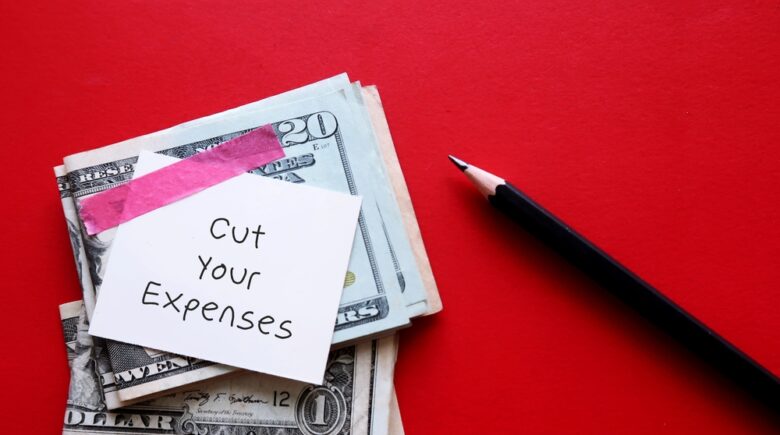Paying off personal loans early is a great way to reduce interest costs without making major sacrifices in your monthly lifestyle. Interest rates on personal loans are typically higher than those on other types of lending, so paying them off makes good financial sense.
To avoid creating more payments, you must stay within the minimum monthly payment required by your loan.
Consider consolidating your loans
Consolidating all of your loans, including a personal loan, into one contract with a single lender will likely result in a lower interest rate and monthly payments. Think through all of the lending options available to you to see what works best for you, and then take the action that best fits your situation. This may mean signing up for automatic transfers and making additional payments on other loans besides your personal loan.
Pay off your loan sooner
One of the best strategies, though sometimes feasible, is to pay off your loan as soon as possible. The longer you have the debt, the more it costs you to make interest payments and other charges.
This is because all loans accrue compounded interest if not paid back monthly. Interest rates on personal loans are generally reasonable compared to different types of consumer debt like credit card or car loans, so this may be one of your cheapest options!
Make partial payments
This is a good strategy for making interest go down faster. You can do this by paying off parts of the loan before the due date arrives. If you make 3 instalment payments smaller than usual, the interest will go down faster than normal. So if you normally pay 1 mini instalment per month, cut it in half and pay 2 instalments over instead.
Refinance
If you’re having trouble managing your payments and want to pay off personal loans early, other options are available to refinance your current loans into one lower-cost loan. This could be the difference between making loan payments each month and struggling with debt forever.
Change your repayment terms
If you’ve been paying off your loan every month and plan to continue that, consider switching to a different schedule. Whether you’re paying off your loan early or late, switching from full to partial repayment or vice versa can save you hundreds of dollars in interest each year. This can add up over a few years.
Apply for a promotion or waive fees to get a lower interest rate
If you are having trouble getting a lower interest rate with your current lender, try applying for a promotion or fee waiver – it’s always worth asking, even if you don’t expect it to work.
Many lenders offer promotions that will reduce your interest rates as soon as you apply for them, and some also provide fee waivers which will allow you to pay off your loan early without additional fees.
Automate your loan repayments to ensure that they are paid on time
When you have an outstanding personal loan, it’s a good idea to automate your payments because otherwise, there is a good chance that you will need to remember to make them in time. If you don’t pay off the minimum amount on time, then there could be additional penalties and costs added to your loan.
Try to get a lower interest rate
This is the most common strategy for paying off personal loans early to reduce interest costs. Many companies offer personal loans at extremely low-interest rates. However, several companies offer these loans at higher interest rates. Check around before filling out your application, as it could make all the difference when paying off your loan early!
Consider allocating extra payments to the loan
If you are struggling financially and find that your lender will not let you change your repayment terms, this could be a good strategy as it removes any challenge you may have when trying to pay off your loan early.
Allocate some of your extra money each month into paying down the principal on your personal loan until there is no longer enough interest to cover any repayments.
Make partial payments
If you can do this, it will help you to save more and potentially free up some money that could be used towards your loan repayment instead of interest payments. Be careful, though, as many loans will charge higher interest rates for late or missed payments, so it is important to remember this when making any choices.
Find extra money each month
If you can’t afford to pay off your loan early, look for ways to put more money toward your debt. Look at your current expenses and find ways to reduce these costs. Decide which payments are important and then eliminate or reduce non-essential spending.
Keep a budget
Staying within budget often is one of the best ways to reduce loan repayment fees and keep more money in your pocket. Owning one is an excellent way to control how much debt you accrue over time. A budget can help you decide what spending compromises you can make to give your loans some extra attention.
Being flexible with repayments
Another way to reduce the interest paid is by being flexible with how often and how much you repay the loan each month. This can be a great way to reduce the overall interest you pay on your loans because if you’re not spending it all at once, you’re not paying interest. Think about the amount of money wasted by overpaying your loan by waiting too long to repay it.
Inference
Paying off the interest on personal loans can get expensive and tricky, but it’s possible with time and patience.
It is important to avoid punitive actions by your lender due to poor financial decisions, such as defaulting on loans. By working with your bank and lender, you can find a payment option that works best for you and ensure this debt will not cause additional financial problems.



